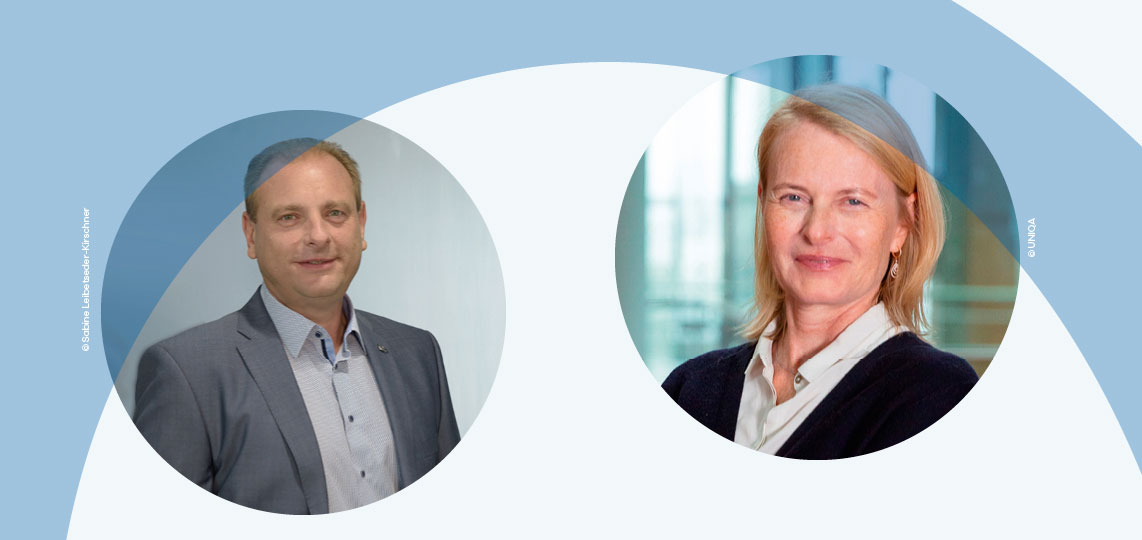
Interview: The future of customer service is hybrid
Read interview
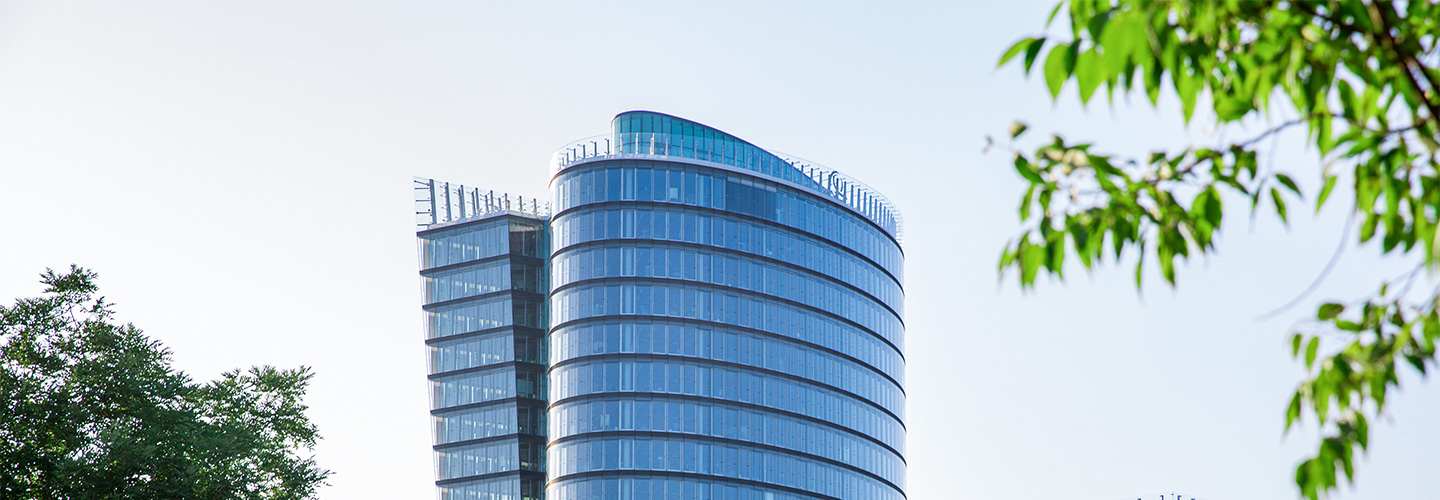
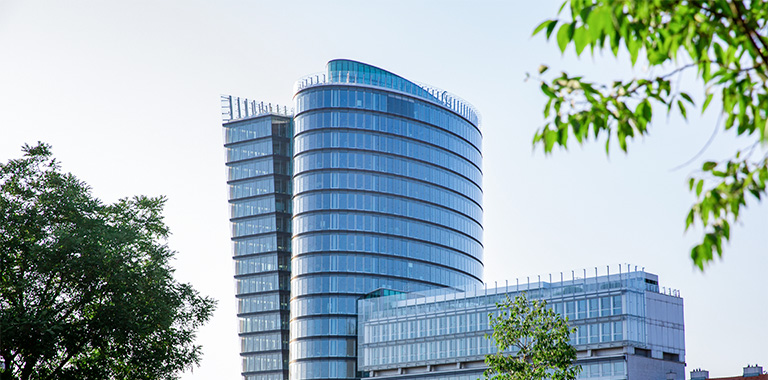
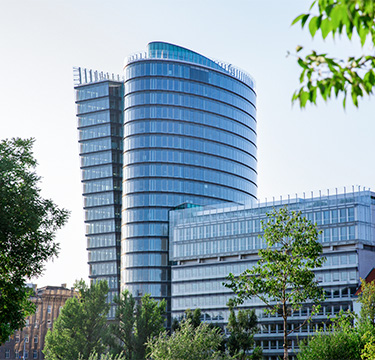
Climate protection starts at home. That is why the UNIQA operations management has imposed strict environmental standards: energy efficiency, more renewable energies, fewer CO2 emissions, and resource conservation. Measures such as the expansion of the e-charging infrastructure in Austria carries relevance well beyond the company.
Worldwide, energy production accounts for around a quarter of all greenhouse gases. It is therefore important to use energy carefully and efficiently. UNIQA uses the industry's leading energy monitoring system to analyse and optimise electricity, heat and water consumption at around 70 locations in Austria. Since 2018, changes to the settings of technical systems alone have saved almost two million kilowatt hours of electricity and over one million kilowatt hours of heat, and thus more than 600 tonnes of CO2. This is roughly equivalent to the annual electricity and heating requirements of over 500 Austrian households.
In total, UNIQA has already implemented over a thousand organisational measures in the area of energy efficiency with the help of energy monitoring - from the optimisation of heating systems to the operating time of ventilation systems and lighting.
In our sustainability strategy we are committed to the Paris climate goals and are already striving for climate neutrality in Austria by 2040. Energy monitoring is a flagship project in our #EnvironmentallyBetterTogether package of measures for more energy efficiency and conservation of resources.
With energy monitoring, UNIQA is not standing still in its core market of Austria. With a bundle of measures, operational ecology is setting the course for a future worth living. These include the introduction of an EMAS environmental management system from 2024, the use of 100 per cent Ecolabel 46 green electricity, the massive expansion of photovoltaic systems and the complete phase-out of fossil fuel heating systems by 2035. The "Energy & Environmental Services" team, newly established in 2023, develops and coordinates these and numerous other measures and ensures that operational ecology at UNIQA remains "state of the art".
The greening of mobility is also a core concern for UNIQA. Avoiding and reducing emissions are important goals both in the choice of means of transport and in reimbursement rules. For planned trips, we evaluate whether a physical presence is necessary. From 2024, UNIQA will cover part of the cost of annual tickets to make the use of public transport even more attractive for employees.
In the vehicle fleet at the Austrian site, the ambitious goal is to reduce the average CO2 emissions of the fleet of around 150 vehicles to 40 grams per kilometre by the end of 2024. The UNIQA fleet is to be fully electrified by 2030 at the latest, including its own charging stations.
UNIQA is cooperating with Austria's largest mobility club, the ÖAMTC. Around 150 public charging points throughout the country are tightening the supply network for all e-car drivers and increasing price transparency. This is because the electricity actually used is charged without any hidden additional costs or parking fees.
'With ÖAMTC as a partner we can guarantee clean and fair billing to climate-conscious drivers,' says Wolf Gerlach, Chief Operations Officer at UNIQA Insurance Group AG: 'Aware of our social responsibility, we have invested in publicly accessible charging stations for everyone in Austria.'
UNIQA employees and customers also benefit from an additional internal contingent at their own charging points, including in the UNIQA Tower, which is one of the largest such garage projects in Vienna.
E-mobility is also becoming increasingly popular in Austria. This is also due to the increased range. Most batteries today can manage 250 to 450 kilometres, but 600 is also possible. E-cars make up for the comparatively high purchase costs during operation: their service costs are up to two thirds lower than those of conventional cars. The motor-related insurance tax and the standard consumption tax (NoVA) are eliminated for electric cars, as is the non-cash benefit for employees in the case of company cars (incidentally, electric vehicles used for business purposes are input tax deductible). And: UNIQA has been supporting electromobility in Austria since the zero hour and rebates 25 per cent of the motor vehicle liability premium for e-drivers.
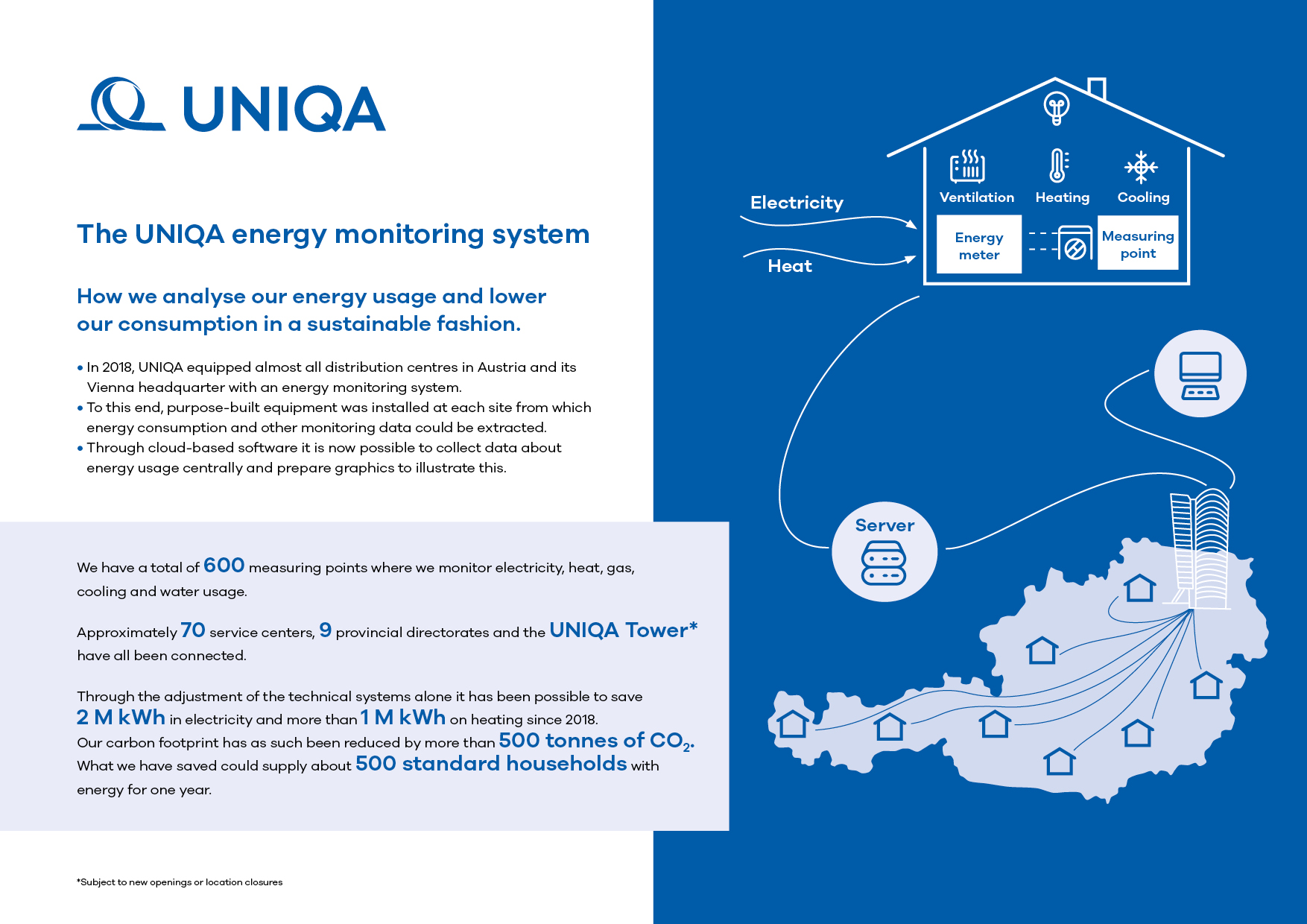
Read interview
Read interview
Read article

